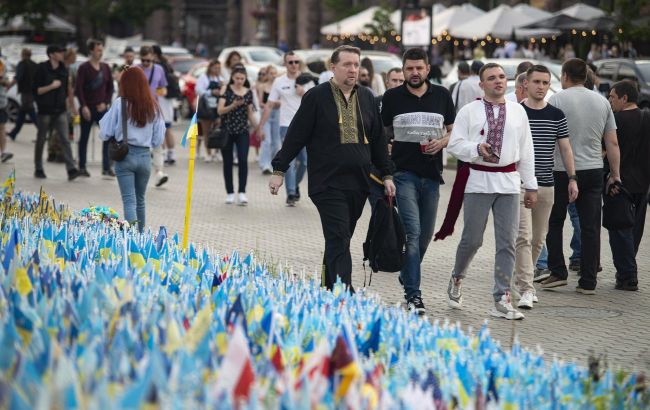Oncologist explains how Russia's war against Ukraine will impact health of Europeans
 The oncologist told how Russia's war in Ukraine will affect the health of Europeans (photo: Getty Images)
The oncologist told how Russia's war in Ukraine will affect the health of Europeans (photo: Getty Images)
During Russia's full-scale war against Ukraine, millions of Ukrainians went abroad and began to build their lives there. However, this also hides the risks of transferring carcinogenic bacteria and viruses, says oncologist Oleksii Kovalov.
According to the doctor, cancer risks during the war in Ukraine are also increasing for the countries of the European Union
"Massive population movements increase the risk of spreading viruses and bacteria that are potential causes of cancer. We are talking about Helicobacter pylori (stomach cancer), Epstein-Barr virus (nasopharyngeal cancer and non-Hodgkin's lymphoma), human papillomavirus-HPV (cervical cancer), and the already mentioned hepatitis B and C viruses," he says.
Oleksii adds that if there are no vaccination and HPV screening programs in Ukraine, mass migration of women to the EU countries may increase the risk of infection of Europeans with carcinogenic viruses.
"Sexually transmitted infections are dangerous. For example, after the war in Vietnam, there was a surge in cervical cancer by more than 260%. Unfortunately, this trend is possible in Ukraine as well," the expert notes.
Russia's war impact on health of Ukrainians
"When buildings explode, asbestos dust gets into the air. It can be carried over long distances - tens or even hundreds of kilometers. It settles on the ground and then spreads again with the air. The concentration of this carcinogen in the air has increased dramatically amid the war," says the oncologist.
Oleksii emphasizes that inhalation of asbestos dust from destroyed buildings can significantly affect the incidence of lung cancer in Ukrainians.
Kovalov believes that the war affects health even when it has not yet begun. First of all, it is manifested in the emissions of fuel substances from military equipment into the atmosphere.
Another problem is smog and carbon monoxide from fires. In addition, the air is polluted with gaseous substances and particulate matter.


